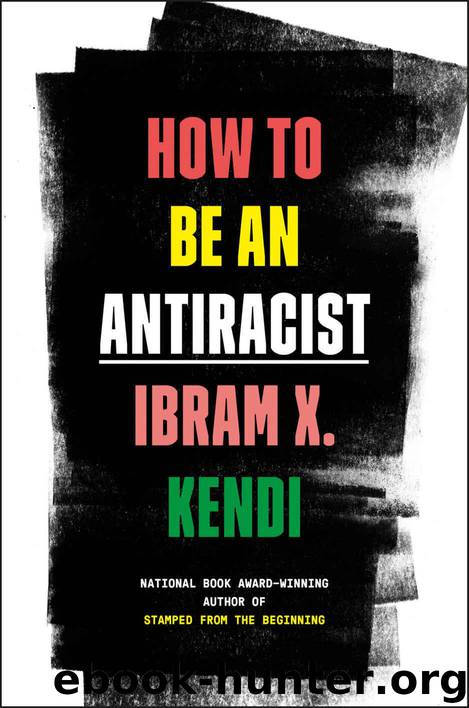How to Be an Antiracist by Kendi Ibram X

Author:Kendi, Ibram X. [Kendi, Ibram X.]
Language: eng
Format: azw3, epub
Publisher: Random House Publishing Group
Published: 2019-08-12T16:00:00+00:00
* * *
—
DARK GHETTO WAS a groundbreaking study of the Black poor during President Johnson’s war on poverty in the 1960s, when scholarship on poverty was ascendant, like the work of anthropologist Oscar Lewis. Lewis argued that the children of impoverished people, namely poor people of color, were raised on behaviors that prevented their escape from poverty, perpetuating generations of poverty. He introduced the term “culture of poverty” in a 1959 ethnography of Mexican families. Unlike other economists, who explored the role of policy in the “cycle of poverty”—predatory exploitation moving in lockstep with meager income and opportunities, which kept even the hardest-working people in poverty and made poverty expensive—Lewis reproduced the elitist idea that poor behaviors keep poor people poor. “People with a culture of poverty,” Lewis wrote, “are a marginal people who know only their own troubles, their own local conditions, their own neighborhood, their own way of life.”
White racists still drag out the culture of poverty. “We have got this tailspin of culture in our inner cities in particular of men not working, and just generations of men not even thinking about working, and not learning the value and the culture of work,” Wisconsin representative Paul Ryan said in 2015. “So there’s a real culture problem here that has to be dealt with.”
Unlike Lewis and Ryan, Kenneth Clark presented the hidden hand of racism activating the culture of poverty, or what he called “pathology.” In Clark’s work, the dueling consciousness of the oppression-inferiority thesis resurfaced. First slavery, then segregation, and now poverty and life in the “ghetto” made Black people inferior, according to this latest update of the thesis. Poverty became perhaps the most enduring and popular injustice to fit into the oppression-inferiority thesis.
Something was making poor people poor, according to this idea. And it was welfare. Welfare “transforms the individual from a dignified, industrious, self-reliant spiritual being into a dependent animal creature without his knowing it,” U.S. senator Barry Goldwater wrote in The Conscience of the Conservative in 1960. Goldwater and his ideological descendants said little to nothing about rich White people who depended on the welfare of inheritances, tax cuts, government contracts, hookups, and bailouts. They said little to nothing about the White middle class depending on the welfare of the New Deal, the GI Bill, subsidized suburbs, and exclusive White networks. Welfare for middle- and upper-income people remained out of the discourse on “handouts,” as welfare for the Black poor became the true oppressor in the conservative version of the oppression-inferiority thesis. “The evidence of this failure is all around us,” wrote Heritage Foundation president Kay Coles James in 2018. “Being black and the daughter of a former welfare recipient, I know firsthand the unintended harm welfare has caused.”
Kenneth Clark was an unrelenting chronicler of the racist policies that made “the dark ghetto,” but at the same time he reinforced the racial-class hierarchy. He positioned the Black poor as inferior to Black elites like himself, who had also long lived “within the walls of the ghetto,” desperately attempting “to escape its creeping blight.
Download
This site does not store any files on its server. We only index and link to content provided by other sites. Please contact the content providers to delete copyright contents if any and email us, we'll remove relevant links or contents immediately.
| General | Discrimination & Racism |
Nudge - Improving Decisions about Health, Wealth, and Happiness by Thaler Sunstein(7709)
The Fire Next Time by James Baldwin(5447)
iGen by Jean M. Twenge(5417)
Adulting by Kelly Williams Brown(4574)
The Sports Rules Book by Human Kinetics(4388)
The Hacking of the American Mind by Robert H. Lustig(4383)
The Ethical Slut by Janet W. Hardy(4256)
Captivate by Vanessa Van Edwards(3840)
Mummy Knew by Lisa James(3693)
In a Sunburned Country by Bill Bryson(3543)
The Worm at the Core by Sheldon Solomon(3487)
Ants Among Elephants by Sujatha Gidla(3467)
The 48 laws of power by Robert Greene & Joost Elffers(3293)
Suicide: A Study in Sociology by Emile Durkheim(3023)
The Slow Fix: Solve Problems, Work Smarter, and Live Better In a World Addicted to Speed by Carl Honore(3010)
The Tipping Point by Malcolm Gladwell(2925)
Humans of New York by Brandon Stanton(2873)
Get What's Yours for Medicare: Maximize Your Coverage, Minimize Your Costs by Philip Moeller(2740)
Handbook of Forensic Sociology and Psychology by Stephen J. Morewitz & Mark L. Goldstein(2705)
